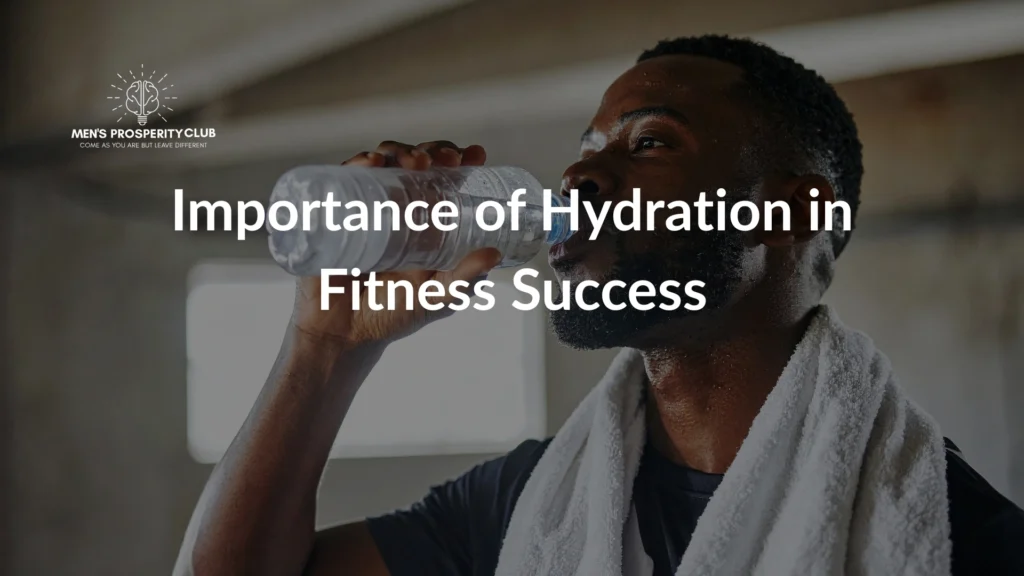Water makes up roughly 60% of your body weight, yet many people training in gyms across the country overlook this crucial element of their fitness routine. You can follow the perfect training programme, eat impeccably clean meals, and get adequate sleep, but without proper hydration, your performance will suffer dramatically. Understanding the importance of hydration transforms not just your workouts but your entire approach to health and fitness.
Why Your Body Demands Water During Exercise
When you exercise, your body temperature rises rapidly. To cool itself down, your system produces sweat, which evaporates from your skin’s surface and regulates your core temperature. This process, whilst essential for preventing overheating, depletes your body’s water stores at an alarming rate. During intense training sessions, you can lose anywhere from 500ml to 2 litres of fluid per hour, depending on the intensity, duration, and environmental conditions.
Beyond temperature regulation, water performs countless other vital functions during physical activity. It transports nutrients to your muscles, removes metabolic waste products, lubricates your joints, and maintains blood volume. Without adequate hydration, each of these processes becomes compromised, leading to decreased performance and increased injury risk.
The Performance Toll of Dehydration
Even mild dehydration significantly impacts your athletic performance. Research consistently shows that losing just 2% of your body weight through fluid loss can reduce your physical capabilities by up to 10%. This decline affects both endurance and strength-based activities, making every rep, every sprint, and every movement substantially harder.
Your cardiovascular system bears the brunt of dehydration first. When fluid levels drop, your blood becomes thicker and more viscous, forcing your heart to work considerably harder to pump blood throughout your body. This increased cardiac strain elevates your heart rate and reduces your body’s efficiency at delivering oxygen to working muscles. Consequently, exercises that normally feel manageable suddenly become exhausting.
Moreover, dehydration impairs your body’s ability to regulate temperature effectively. Without sufficient fluid for sweat production, your core temperature climbs dangerously high. This overheating not only feels uncomfortable but also triggers early fatigue, forcing you to stop exercising well before reaching your true potential.

Mental Performance Suffers Too
The importance of hydration extends far beyond physical capabilities. Your brain, which consists of approximately 75% water, desperately needs proper hydration to function optimally. During training sessions, dehydration affects your concentration, coordination, and decision-making abilities. You’ll find yourself struggling to maintain proper form, losing track of rep counts, or making poor judgement calls during your workout.
Additionally, dehydration significantly impacts your mood and motivation. Studies reveal that even slight fluid deficits can trigger irritability, anxiety, and reduced cognitive function. That mental fog you experience mid-workout might not stem from inadequate sleep or poor nutrition—it could simply be your brain crying out for water.
Recognising the Warning Signs
Learning to identify dehydration symptoms helps you address the problem before it derails your training. Thirst, whilst obvious, actually arrives rather late in the dehydration process. By the time you feel thirsty, you’ve already lost a significant amount of fluid.
Watch for these earlier warning signs instead. Dark yellow urine indicates concentrated waste products, suggesting you need more fluids. Headaches, dizziness, and excessive fatigue during workouts all point towards inadequate hydration. Muscle cramps, particularly during or after exercise, often result from electrolyte imbalances caused by fluid loss. Dry mouth, reduced sweating despite intense exercise, and decreased urination frequency all signal that your body desperately needs water.
Strategic Hydration Throughout the Day
Proper hydration doesn’t begin when you enter the gym—it starts the moment you wake up. Your body loses water overnight through breathing and minimal perspiration, so you naturally wake up in a slightly dehydrated state. Starting your day with a large glass of water kickstarts your hydration and prepares your body for the day ahead.
Throughout the day, maintain consistent fluid intake rather than gulping large amounts sporadically. This steady approach allows your body to absorb water more efficiently and maintains optimal hydration levels. Keep a water bottle visible on your desk, in your car, or wherever you spend most of your time. Visual reminders dramatically increase the likelihood that you’ll drink regularly.
Contrary to popular belief, you needn’t obsessively track every millilitre consumed. Instead, pay attention to your body’s signals and your urine colour. Pale yellow indicates good hydration, whilst clear urine suggests you might be drinking excessively (which can also cause problems). Dark yellow or amber signals you need more fluids.
Pre-Workout Hydration Strategy
Arriving at the gym properly hydrated sets the foundation for successful training. Aim to drink approximately 400-600ml of water two to three hours before your workout. This timing allows your body to absorb the fluid and eliminate any excess through urination before you begin exercising.
Then, about 20-30 minutes before starting, consume another 200-300ml. This top-up ensures your fluid levels peak just as you begin training. However, avoid drinking massive amounts immediately before exercising, as this can cause uncomfortable sloshing sensations and the urgent need for toilet breaks mid-workout.
Hydrating During Your Training Session
During exercise, your hydration strategy depends largely on your workout’s duration and intensity. For sessions lasting under an hour at moderate intensity, water alone typically suffices. Aim to sip 150-250ml every 15-20 minutes, though this varies based on sweat rate and environmental conditions.
For longer or more intense sessions exceeding 60 minutes, particularly in hot conditions, you’ll need to replace not just water but also electrolytes lost through sweat. Sports drinks containing sodium, potassium, and carbohydrates become valuable here. These beverages help maintain fluid balance, provide energy, and replace crucial minerals that pure water cannot restore.
Listen to your body during training. If you feel thirsty, drink. If your performance suddenly drops despite feeling strong moments earlier, dehydration might be the culprit. Don’t wait for severe symptoms to appear before addressing your fluid intake.

Post-Workout Recovery Hydration
Rehydration after exercise proves just as important as drinking during your workout. Your body continues losing fluid after you finish training, so replacing these losses becomes essential for proper recovery. A practical approach involves weighing yourself before and after workouts. For every kilogram lost, drink approximately 1.5 litres of fluid over the next few hours.
This enhanced replacement ratio accounts for continued fluid losses through urination and breathing after exercise. Including some sodium in your post-workout drinks—either through sports beverages or simply adding a pinch of salt to water—helps your body retain fluids more effectively.
Beyond Plain Water: Hydration Sources
Whilst water remains the gold standard for hydration, other beverages and foods contribute to your daily fluid intake. Herbal teas, coconut water, and diluted fruit juices all provide hydration benefits. Milk, particularly for post-workout recovery, offers both fluids and valuable nutrients that support muscle repair.
Many fruits and vegetables contain high water percentages and contribute meaningfully to your hydration status. Watermelon, cucumber, oranges, strawberries, and lettuce all boast water contents exceeding 90%. Including these foods in your diet supplements your drinking habits and provides additional vitamins and minerals.
However, exercise caution with caffeinated beverages. Whilst moderate coffee or tea consumption doesn’t severely dehydrate you as once believed, caffeine does have mild diuretic effects. Balance caffeinated drinks with additional water to compensate for any increased fluid loss.
Special Considerations for Different Training Environments
Training in hot, humid conditions dramatically increases fluid requirements. High temperatures elevate sweat rates, whilst humidity prevents efficient evaporation, making cooling more difficult. In these environments, increase your fluid intake substantially and consider taking more frequent breaks to rehydrate.
Cold weather training, surprisingly, also poses hydration challenges. You might not feel as thirsty in colder conditions, yet your body still loses significant fluids through breathing and sweating beneath layers of clothing. Don’t let reduced thirst sensations trick you into neglecting your hydration needs during winter workouts.
High-altitude training presents unique hydration demands too. The drier air and increased breathing rate at elevation accelerate fluid loss, even if you’re not sweating heavily. Athletes training at altitude must consciously increase their fluid intake to compensate for these additional losses.
Individual Variation Matters
Everyone’s hydration needs differ based on numerous factors. Body size, fitness level, sweat rate, and training intensity all influence how much fluid you require. Larger individuals generally need more fluids than smaller people. Fitter athletes often sweat more efficiently, potentially increasing their fluid requirements during intense training.
Some people naturally sweat more profusely than others, leaving salt stains on their clothing and experiencing significant fluid losses. These heavy sweaters must pay extra attention to both fluid and electrolyte replacement. Conversely, lighter sweaters might meet their hydration needs with less aggressive fluid intake.
Experiment with different hydration strategies during training to discover what works best for your body. Track your performance, energy levels, and recovery alongside your fluid intake to identify your optimal hydration approach.
Making Hydration Habitual
The importance of hydration becomes truly valuable only when you consistently apply proper hydration practices. Building sustainable habits ensures you maintain optimal fluid levels without constantly thinking about it. Start by establishing regular drinking patterns throughout your day, not just around workouts.
Set reminders on your phone if necessary, at least initially until drinking regularly becomes automatic. Keep water bottles in strategic locations—your car, office, gym bag, and bedside table. Visual cues and easy access dramatically increase the likelihood you’ll drink enough.
Track your hydration for a week or two using an app or simple journal. This awareness often reveals surprising gaps in your fluid intake and helps establish better patterns. Once proper hydration becomes habitual, you’ll notice improvements in your training performance, recovery, and overall wellbeing.
The Foundation of Fitness Success
Proper hydration doesn’t guarantee fitness success, but inadequate hydration virtually ensures you’ll never reach your full potential. Water facilitates every physiological process that supports your training, from energy production to muscle repair. It regulates your body temperature, maintains blood volume, transports nutrients, and removes waste products.
Moreover, staying properly hydrated requires minimal effort and costs practically nothing. Unlike expensive supplements or complicated training protocols, hydration offers tremendous benefits for virtually no investment beyond awareness and consistency.
Make hydration a non-negotiable part of your fitness routine. Drink water upon waking, maintain steady intake throughout the day, arrive at the gym properly hydrated, sip fluids during training, and replace losses afterwards. These simple practices, performed consistently, will enhance your performance, accelerate your recovery, and support your long-term health and fitness goals.
Your body performs remarkable feats during training, adapting to stress, building strength, and improving endurance. Give it the fundamental resource it needs to excel—proper hydration. This single habit, maintained consistently, will amplify every other aspect of your fitness programme and help you achieve the results you’re working so hard to accomplish.




